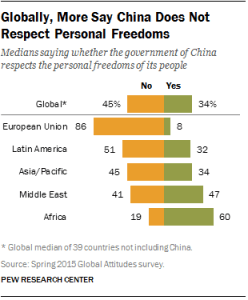
Under pressure from academics and advocates, the U.S. Census Bureau has abandoned plans to delete a series of questions about marriage and divorce from its largest household survey. The agency also is toning down the tactics it uses to encourage people to answer the survey because of complaints that it is too aggressive.
The bureau had proposed eliminating questions from the American Community Survey that asked respondents whether they have been married, widowed or divorced within the past year. Also proposed for removal were questions on how many times a person has been married and when he or she last got married, which can be used to measure marital stability. Agency officials announced their about-face on the marriage questions, in part because of criticism from researchers, in a Federal Register notice published last month.
Census Bureau officials said the volume of comments on the proposal to drop the questions – nearly 1,700 – was “unprecedented in the history of the survey.”
The survey’s annually updated demographic, social, economic and housing estimates help guide the distribution of more than $400 billion in federal funds, and are widely used by government officials, businesses, researchers and advocacy groups. But some in Congress criticize the survey as overly intrusive, and have proposed eliminating it, which is one reason for the bureau’s review of the questions.
The bureau proposed last year to drop a total of five questions from the American Community Survey after reviewing the benefits and costs of all 72 questions. But the agency reversed course on deleting the marriage and divorce questions and on removing a question asking about people’s undergraduate field of degree, though it will eliminate another question about whether people have home offices. The Office of Management and Budget, which regulates federal surveys, will make the final decision.
In the same Federal Register notice, the bureau said it is taking extensive steps to make the survey easier on respondents by moderating its outreach to them and by continuing to consider asking them fewer questions.
For example, the agency is testing softer alternative wording in its communications with the 295,000 households that are sent the survey each month. The current message points out that response is required by law, in part because research has found that a mandatory survey has a higher response rate. In its mailing to some households this month, the bureau will remove that warning, and then evaluate whether that affects the response rate.
This summer, the agency will test the impact of reducing the number of times its employees knock on doors of potential respondents. The bureau says it already has cut the number of phone calls it makes to remind people to fill out the survey, without hurting response.
The bureau also is exploring whether some questions – such as those on marriage and divorce – could be asked less frequently to ease the burden on respondents, while still providing enough data to be useful to users. Bureau officials say they will consider whether those questions could be asked every other year or every third year, or asked of only some respondents each year.
In evaluating whether to drop questions entirely, the bureau studied their usefulness to other federal agencies, as well as the costs to respondents in terms of sensitivity and effort required to answer. The agency reported that few federal agencies use data from the marriage questions, but that the questions also generated few complaints from survey respondents.
However, the bureau received 1,361 comments protesting the plan to drop the marriage questions, mostly from outside the federal government. (Two Pew Research Center staff members sent comments to the Census Bureau opposing the proposal to drop the marriage questions; as an institution, Pew Research Center does not take positions on policy issues.)
More than 400 of those comments said the proposal showed the bureau did not value information about marriage, and some conservative groups (including some who oppose same-sex marriage) have spoken out against the proposal. More than 100 comments, including some from population research groups, argued that the questions are needed to measure marriage trends, because there is no other national source of this information and quality of state vital statistics vary greatly.

